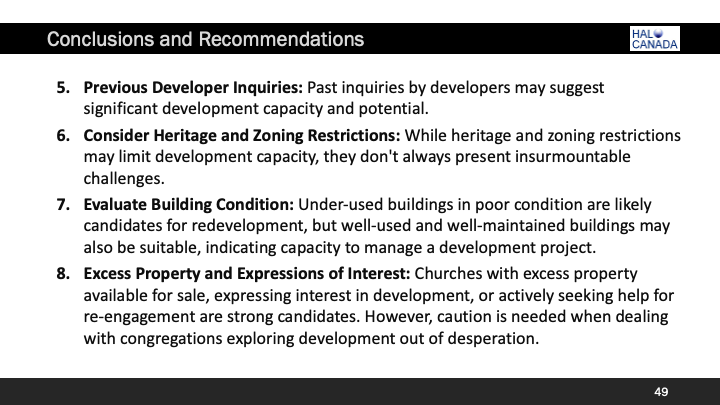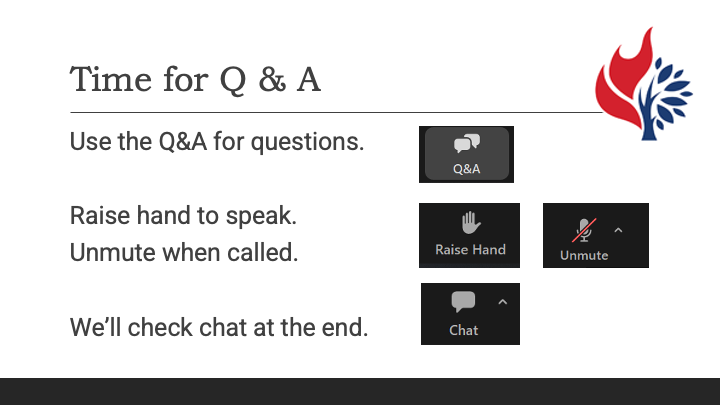PCC: Building Survey & Congregation Risk Assessment Results
Karen and Mike share ideas of learnings that may be helpful for congregations and presbyteries in light of the PCC’s building survey an a congregational risk assessment based on congregational financials reported in the T3010s. Our goal is to help congregations and presbyteries to navigate the complexities of managing their resources effectively in the coming years. At the end there was a time for Q&A.
Slides from the Webinar
























































Summary of Assessments
Building Survey:
A dedicated working group of the Life and Mission Agency has been assessing resources to support congregations and presbyteries in the stewardship of their buildings. By conducting the survey on property and buildings in the fall of 2023, we've gathered valuable insights to help presbyteries and congregations to better plan and understand how to steward these vital resources. This data will serve as a cornerstone for informed decision-making at all levels of our organization. Karen Plater will walk us through the survey results.
Key Findings:
A significant portion of church properties are underutilized, indicating potential for better utilization in serving both congregational needs and broader community functions.
About 25% of respondents were optimistic about growth, while others anticipated stability or considered amalgamation and even dissolution.
Congregation Risk Assessment:
Concurrently, Mike Daly of Sphaera Research has identified key characteristics indicative of a congregation's vulnerability to closure in the next 3-5 years using information from the T3010s filed by over 4300 congregations across Canada. He has applied his study to the T3010 data filed by Canadian Presbyterian congregations and added inputs from the PCC statistical reports and the building survey, to provide an analysis which can help congregations and presbyteries assess future risks.
Takeaways and Recommendations:
Strategic Planning: Congregations are encouraged to use the survey results for strategic planning, focusing on maximizing property use and considering new models of community engagement.
Risk Awareness: Understanding risk factors empowers congregations to address potential vulnerabilities early, potentially staving off closure.
Resource Allocation: The assessments suggest a need for better resource allocation, advocating for investments in maintenance and updates to make church facilities more accessible and versatile.
Future Steps:
The PCC plans to continue this dialogue through additional webinars and discussions. The results from these assessments will also be used to tailor resources and support to congregations at varying levels of risk and need.
